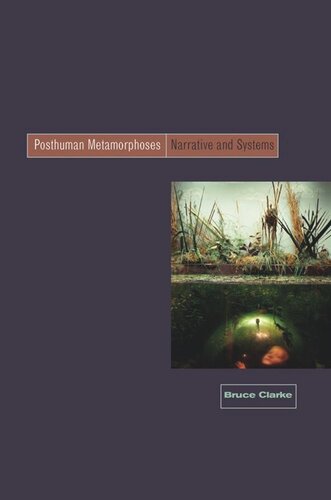

Most ebook files are in PDF format, so you can easily read them using various software such as Foxit Reader or directly on the Google Chrome browser.
Some ebook files are released by publishers in other formats such as .awz, .mobi, .epub, .fb2, etc. You may need to install specific software to read these formats on mobile/PC, such as Calibre.
Please read the tutorial at this link: https://ebookbell.com/faq
We offer FREE conversion to the popular formats you request; however, this may take some time. Therefore, right after payment, please email us, and we will try to provide the service as quickly as possible.
For some exceptional file formats or broken links (if any), please refrain from opening any disputes. Instead, email us first, and we will try to assist within a maximum of 6 hours.
EbookBell Team

4.8
54 reviewsFrom Dr. Moreau’s Beast People to David Cronenberg’s Brundlefly, Stanislaw Lem’s robot constructors in the Cyberiad to Octavia Butler’s human/alien constructs in the Xenogenesis trilogy, Posthuman Metamorphosis examines modern and postmodern stories of corporeal transformation through interlocking frames of posthumanism, narratology, and second-order systems theory. New media generate new metamorphs. New stories have emerged from cybernetic displacements of life, sensation, or intelligence from human beings to machines. But beyond the vogue for the cyborg and the cybernetic mash-up of the organic and the mechanical, Posthuman Metamorphosis develops neocybernetic systems theories illuminating alternative narratives that elicit autopoietic and symbiotic visions of the posthuman. Systems theory also transforms our modes of narrative cognition. Regarding narrative in the light of the autopoietic systems it brings into play, neocybernetics brings narrative theory into constructive relation with the systemic operations of observation, communication, and paradox. Posthuman Metamorphosis draws on Bruno Latour, Donna Haraway, Niklas Luhmann, Cary Wolfe, Mieke Bal, Katherine Hayles, Friedrich Kittler, and Lynn Margulis to read narratives of bodily metamorphosis as allegories of the contingencies of systems. Tracing the posthuman intuitions of both pre- and post-cybernetic metamorphs, it demonstrates the viability of second-order systems theories for narrative theory, media theory, cultural science studies, and literary criticism.